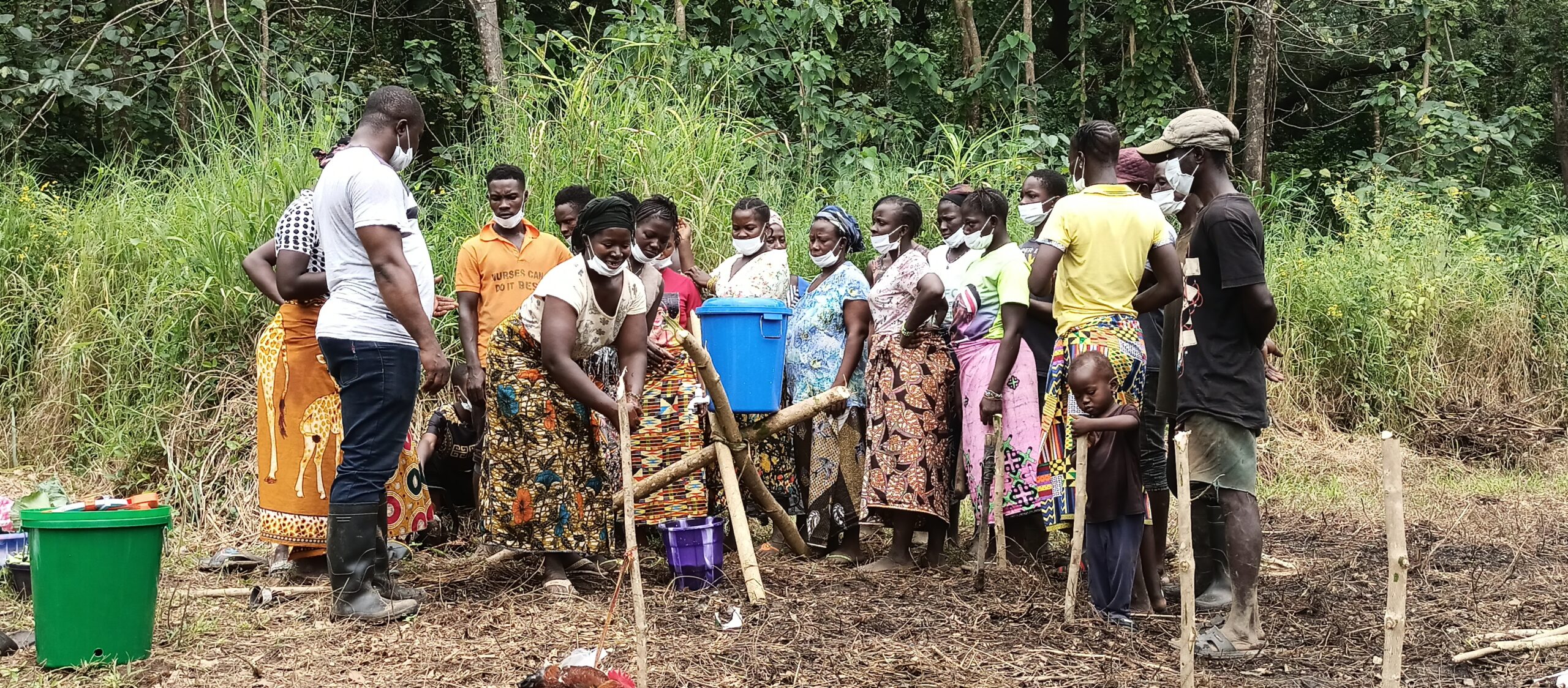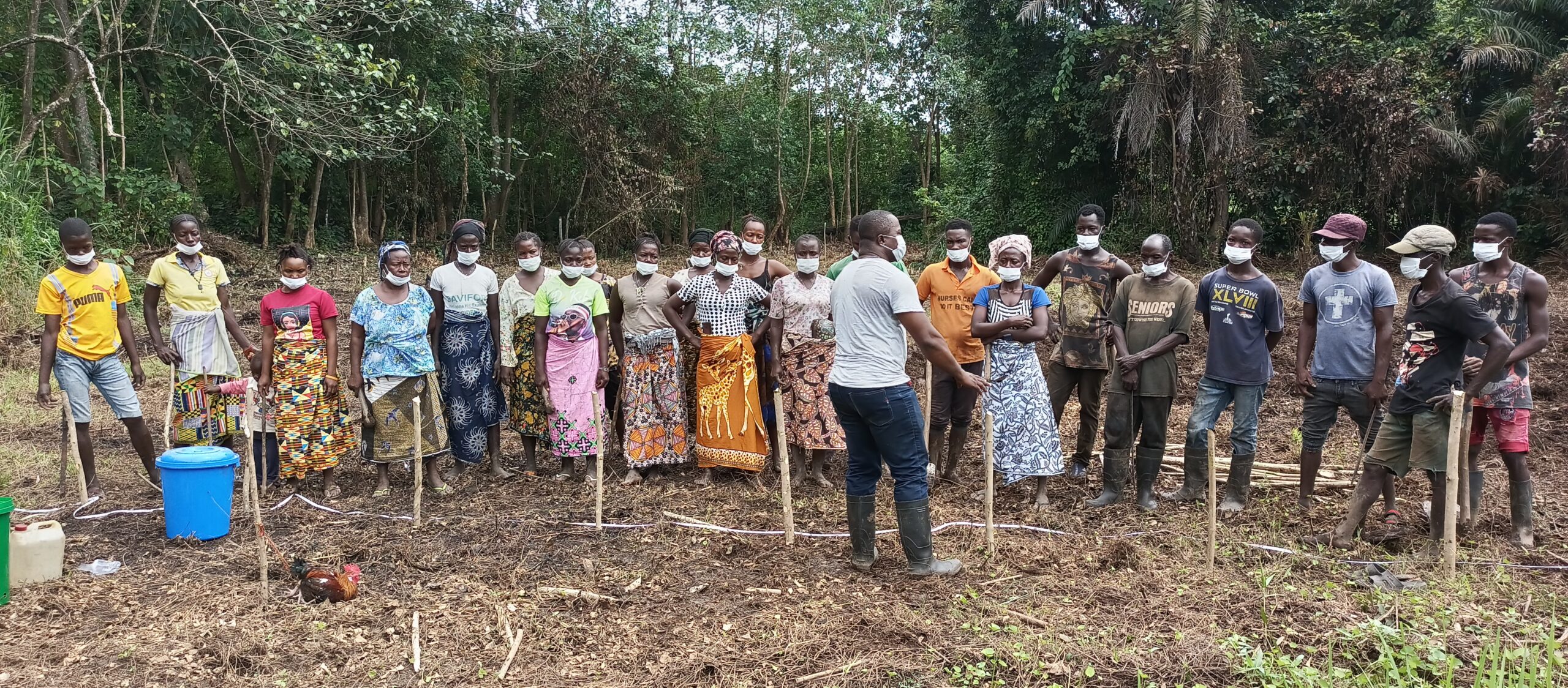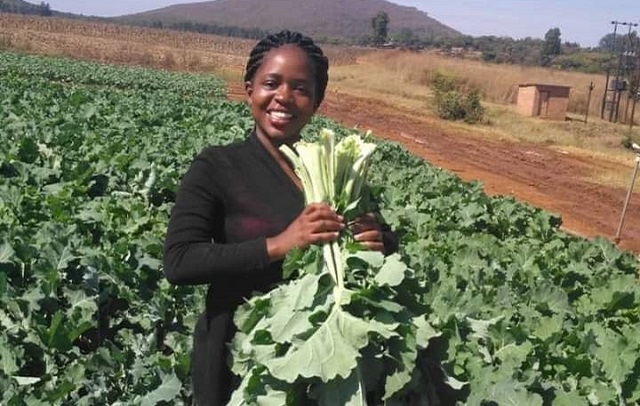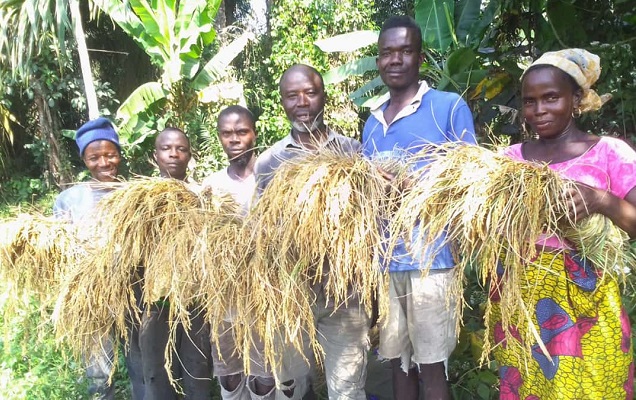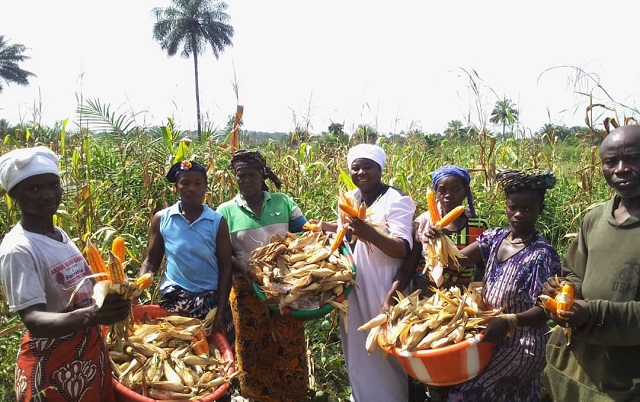Building resilience through permaculture in Sierra Leone
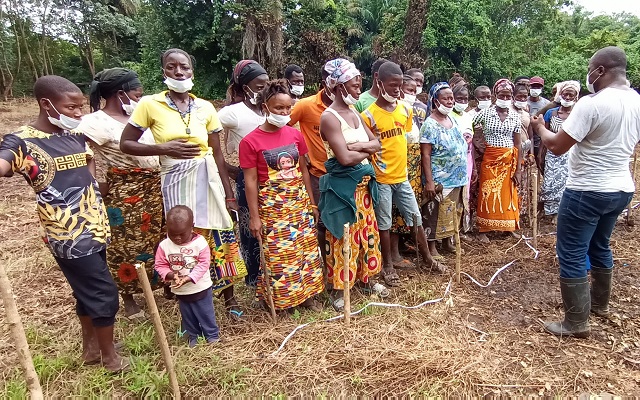
In Sierra Leone, agriculture is predominantly based on the Slash-and-burn principle, which leads to a loss of (forest) vegetation and soil fertility. It also contributes significantly to greenhouse gas emissions (GHG) and regional climate change.
The IKI Small Grants project promotes regenerative and climate neutral agriculture through the establishment of four permaculture projects and four vegetable gardens in four pilot communities in the Koinadugu District in Sierra Leone. A total of two hundred farmers (two thirds being women) learn about climate-friendly farming methods through capacity training programmes. Alongside, 1.200 community members benefit from awareness raising campaigns on the impacts of climate change and possible adaptation solutions. In addition to reducing GHG emissions, the project contributes to increasing income and food security as well as counteracting environmental degradation in the agricultural sector.
INITIAL SITUATION
The project region Koinadugu district is the largest and least densely populated district in Northern Sierra Leone. Historical climate trends in the district show an increase in temperature and a decrease in precipitation. More than 80 % of the District’s population earn its income from agriculture.
In the communities addressed in the project, the effects of climate change and current agricultural practises limit agricultural production and degrade natural resources, leading to household food insecurity. The knowledge and awareness on climate change impact on livelihoods and food security is still limited in Koinadugu district.
TARGET GROUP
200 smallholder farmers from Wara-Wara Yagala and Kasunko chiefdom in Koinadugu district benefit directly from the project. The project targets 140 disadvantaged and economically marginalised women farmers, who do not own and control land as well as 60 youth farmers who are also economically marginalised and have limited access to decision-making positions. They are being selected on the basis that they are the most disadvantaged, marginalised, and vulnerable to household food security and climate change.
The beneficiaries are involved in training activities, establishment of permaculture farms, and awareness raising, sustainable land management practises, and participatory monitoring in the four selected communities. Indirect beneficiaries include 1.200 farm family members of the project participants based on an average household of 6-7 members.
Traditional authorities are addressed to identify the beneficiaries and contribute as influencer to promote the projects awareness rising approach.
APPROACH AND ACTIVITIES
In the framework of this project, smallholder farmers (140 women and 60 men) are trained to adopt climate-smart regenerative farming practises (zero or minimum tillage, slash-no-burn, use of permanent soil cover, crop rotation, and higher crop diversity) using permaculture principles (use of natural farming practises without the use of fertilizers and pesticides, copying traits of natural ecosystems). As a result, soil organic matter is rebuilt, and degraded soil biodiversity is restored enabling both natural carbon capture in the soil and improving its water retention capacity. This leads to a sustainable and even increase in nutrition-sensitive agricultural production and farmer income. Alongside, 1.200 community members benefit from awareness raising campaigns on the impact of climate change and possible adaptation solutions.
The four pilot communities act as role models for further spreading of regenerative agriculture as means of local climate mitigation, eventually yielding important improvements of soil fertility, soil organic carbon content and soil life, as well as farm productivity and income.
LATEST PROJECT HIGHLIGHTS AND IMPACTS
- Project finalised
- Sierra Leone NGO Award 2022 for outstanding performance in the NGO sector
- 200 farmers trained in climate smart regenerative agricultural practices to increase food production
- 30 pregnant and lactating women trained in vegetable production using permaculture principles
- Four nutritional gardens and four permaculture gardens established
- Monitoring of 25 hectares show 35% decrease in fire events in grasslands
- Four multi-village local land use conventions established on burning, wood exploitation and grazing
CAPACITY DEVELOPMENT
IKI Small Grants supports FIOH-SL in their organisational capacity development through:
- Training on advanced accounting and budgeting for administration and finance managers
- Advanced training on monitoring and evaluation for 15 staff members
ABOUT THE ORGANISATION
FIOH started as a group of farmers in 1980s and was officially registered as a national non-government organisation 1995. Today, the Mission of FIOH SL is to co-ordinate and facilitate the efforts of village development groups by enabling them to access farming inputs, modern farming techniques, education and skills poverty alleviation programmes, sanitation and credit facilities for self-sustainability and self-reliance. Its programmes intervene in areas such as capacity building, food security, women and youth empowerment, environment, health and sanitation, advocacy.

